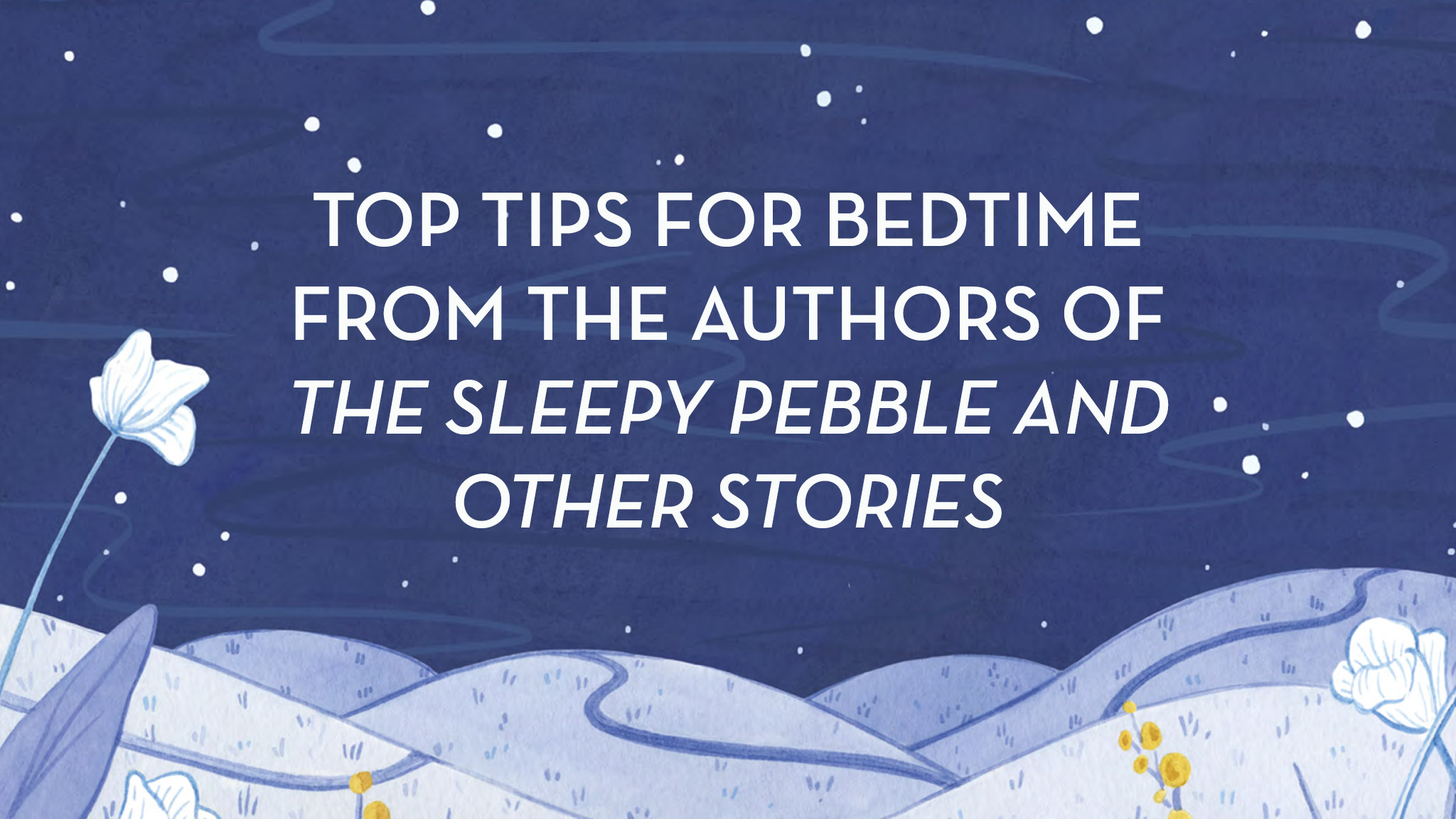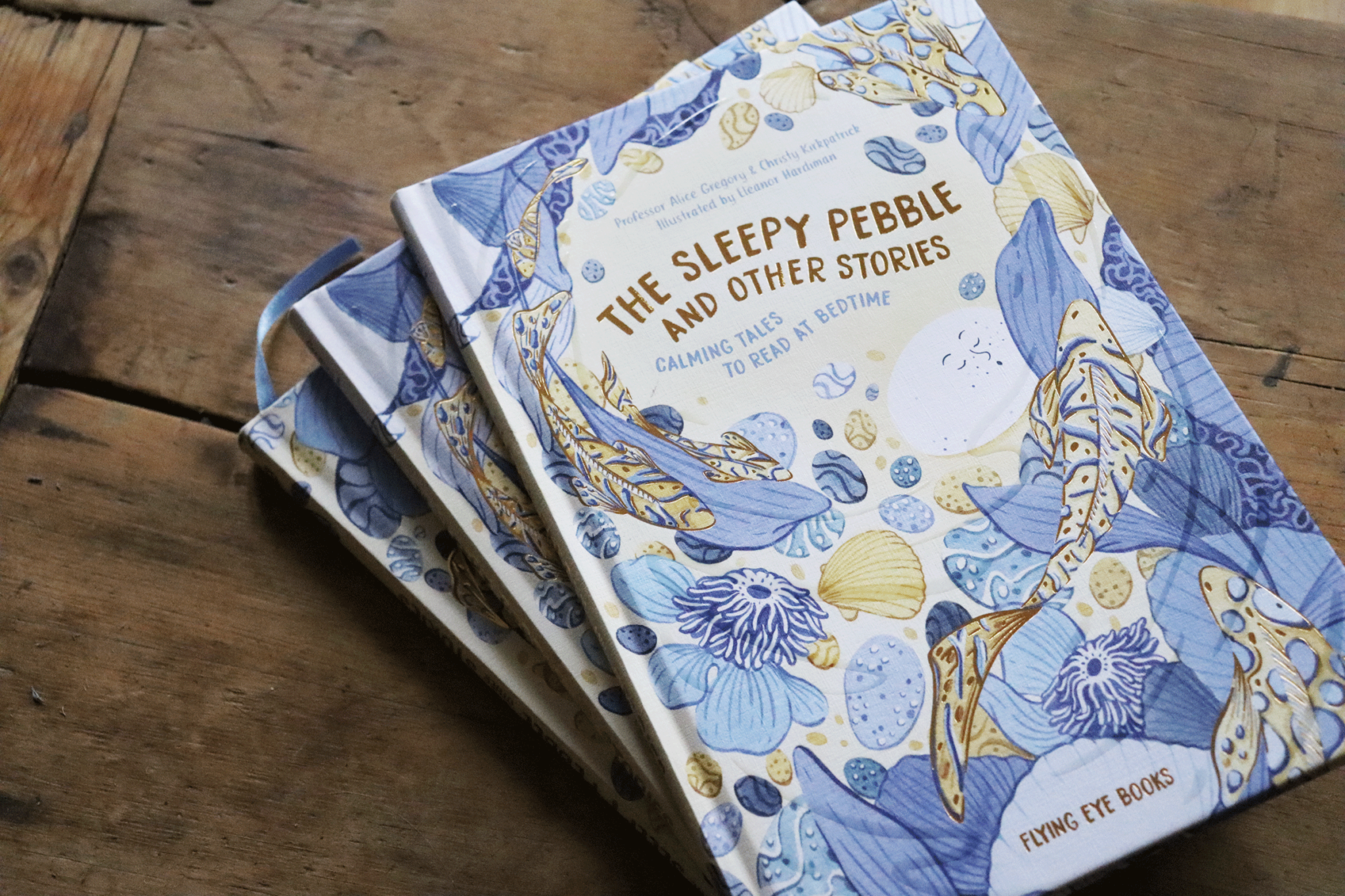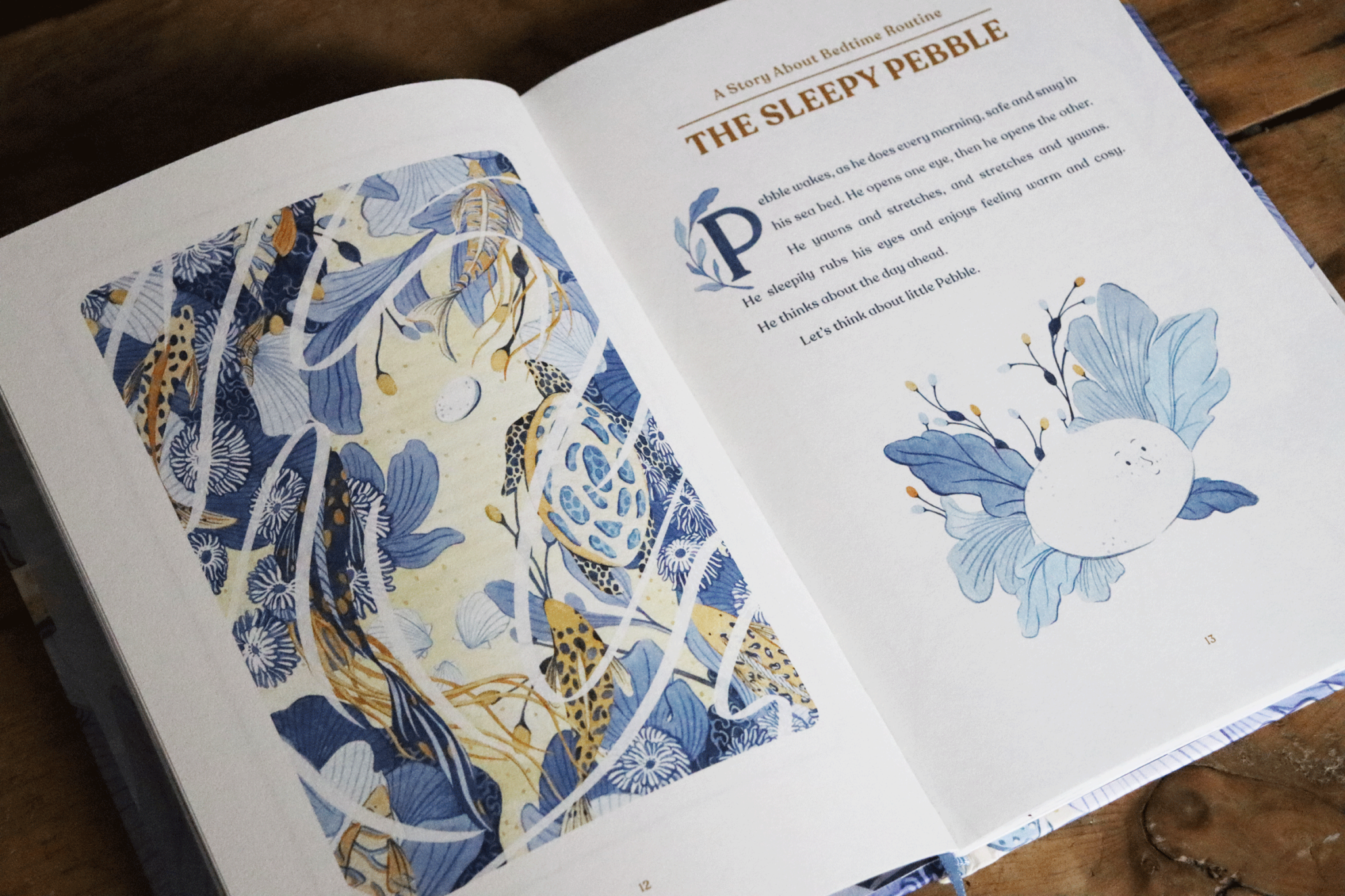
To celebrate World Sleep Day on Friday 19th March, we’ve put together some top tips on how to make bedtime for you and your little ones more relaxing to help you fall into a better sleep from the beautiful The Sleepy Pebble and Other Stories written by Professor Alice Gregory and Christy Kirkpatrick and illustrated by Eleanor Hardiman.
We all know how important it is and how hard it can be to get a good night’s sleep, particularly right now! You may have received multiple tips to help make bedtime a more positive experience or to improve sleep for you and your child. Some tips that have a scientific basis or have been supported by literature are outlined here. Of course, every family is unique and you will have to decide whether or not a tip is helpful for you.
- Think about your diet – Lots of food is lauded as soporific, but it’s currently unclear whether eating thesefoods can have a noteworthy impact on our sleep. Instead, the focus of our diet should be on what to avoid. Caffeine is a key example and can affect our sleep long after it is consumed. While it is unlikely that children will be drinking coffee, remember that caffeine is found in things like cola and chocolate too – so these should also be avoided.
- Be cool – Our core body temperature naturally drops before bedtime and a comfortably cool environment is conducive for good sleep.
- Dim the lights – When it gets dark, our bodies release the ‘darkness hormone’ melatonin. This gives our bodies a cue that it is time to go to sleep. Bright light can disrupt this process, so reduce light as much as you can by using blinds and curtains, dimming the light and avoiding electronic devices that emit light.
- Be clock-like– Our physiological processes are controlled by ‘clocks’ within our bodies. This means that at certain times of day we are more prepared for sleep than at others. If we keep our bedtime and wake time consistent, we help our body know when sleep is coming and to prepare accordingly.
- Enjoy the tranquility of the bedroom– Research suggests that people report better sleep in fresh sheets and that air quality is important for good quality sleep. Avoid stress at night too! Although bedtime can be stressful, tension around this time can influence levels of the stress hormone cortisol and does not aid good sleep, so do all that you can to avoid it.
More top tips and advice on how to help your children relax before bedtime are available in The Sleepy Pebble and Other Stories, a soothing collection of stories co-written by sleep specialist Alice Gregory and children’s book writer Christy Kirkpatrick and illustrated by Eleanor Hardiman. They have crafted these tales to incorporate mindfulness and other techniques that can aid relaxation. Coupled with dreamlike and calming illustrations, this treasury could make bedtime a little bit easier.

